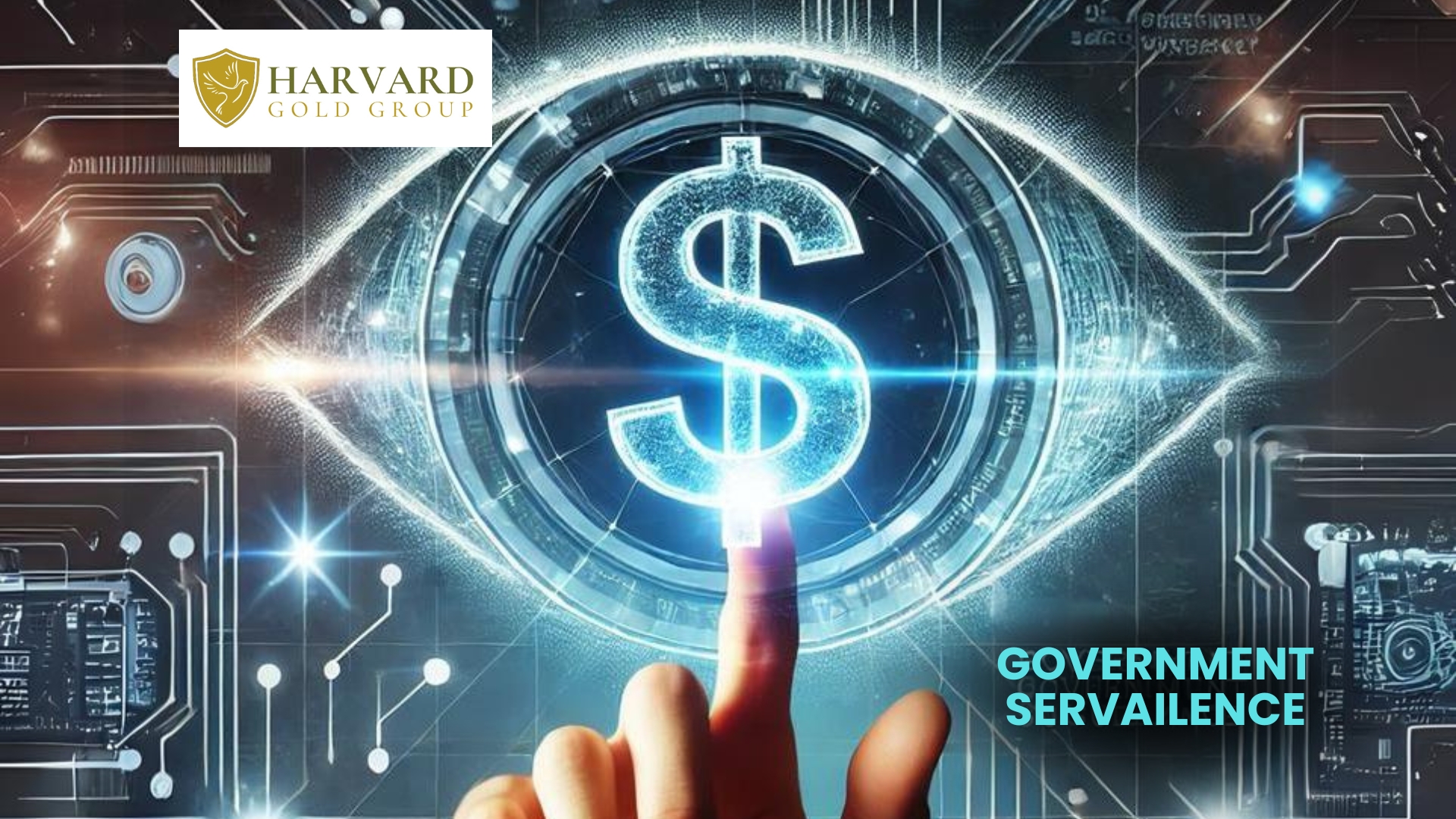
Central bank digital currencies (CBDCs), often referred to as digital dollars, are rapidly gaining traction on a global scale.
Over 100 nations are in various stages of developing their own versions. While advocates argue that these currencies could revolutionize financial efficiency and broaden access, there are significant concerns among freedom advocates that they could also lead to unprecedented levels of financial surveillance and control. As these digital currencies advance, fintech platforms serve as an interim step, but they come with substantial risks of their own. The urgency to consider physical precious metals as a protective measure is intensifying before the full shift to digital currencies occurs.
Resistance to the Digital Dollar
Despite growing resistance to the digital economy, it might already be too late to turn the tide. The United States successfully conducted a pilot test of the digital dollar with several major banks in November 2022, demonstrating that the infrastructure for a digital currency is already in place, albeit in an exploratory phase. House Republicans have passed the CBDC Anti-Surveillance Act, although all 192 opposing votes came from Democrats.
Rep. Patrick McHenry expressed grave concerns, citing examples where governments have "weaponized their financial systems against their own citizens." He firmly stated that financial surveillance enabled by a CBDC "has no place in the United States." However, the bill still needs Senate approval.
The act doesn’t outright ban the creation of a digital dollar; instead, it requires the Treasury to obtain explicit authorization from Congress. This means that a future Democratic-majority Congress could still push for the introduction of a digital dollar. Given that the digital dollar has already been successfully piloted, resistance at this stage may indeed be too little, too late.
Reservations about the digital dollar aren’t limited to Republican lawmakers. Federal Reserve Governor Michelle Bowman also voiced concerns, noting that "the potential benefits of a U.S. CBDC remain unclear, and its introduction could pose significant risks and tradeoffs for the financial system." Bowman highlighted the potential unintended consequences for the U.S. banking system and significant privacy concerns for consumers.
Bowman also pointed out the dangers inherent in stablecoins, a proposed digital dollar alternative. Stablecoins are a type of cryptocurrency designed to maintain a stable value by being pegged to a reserve asset like the U.S. dollar. While they aim to offer the benefits of digital currency without the volatility of traditional cryptocurrencies, Bowman argues that stablecoins are less secure, less stable, and less regulated than conventional forms of money, posing risks to consumers and broader financial stability.
The Hazards of Fintech
Fintech applications are exposing consumers to the perils of digital banking, often with harsh consequences. These mobile apps offer banking services like account management, payments, and money transfers, promising greater convenience and sometimes even offering perks like higher interest rates or sweepstakes. Some even claim to be FDIC insured.
However, these promises have often proven unreliable. Since May, over 200,000 fintech customers have been locked out of their so-called "FDIC insured" accounts following the bankruptcy of fintech provider Synapse Financial Technologies. Investigators estimate that between $65 million and $96 million have simply disappeared. The FDIC has stated that it cannot intervene because no bank failure is involved. As the fintech industry becomes more volatile, customers need to understand that FDIC insurance doesn’t protect against a company’s bankruptcy.
The government suggests that customers might have some recourse if the fintech company maintains clear records, but transparency is rare in this industry. It’s difficult for consumers to gauge how well fintech companies manage the accounts they claim to insure. In certain contexts, these companies can become custodians of people’s assets without having to register as anything.
One bank director remarked that "FinTechs have exploited the industry, enjoying all the benefits of a bank without bearing the risks and costs." Banks, in their pursuit of higher fees and deposit balances, have allowed this to happen.
The Risks of a Fully Digital Economy
While fintech apps and the digital dollar are not identical, they both lead to the same destination. Both aim to enhance financial inclusion, improve transaction speed, and reduce costs, fundamentally transforming the traditional financial landscape.
However, as these technologies evolve, the risks are becoming more apparent. Both fintech platforms and digital currencies pose serious privacy threats. Digital transactions can be monitored and tracked, potentially allowing third parties, including the government, to approve or deny your purchases and donations. Additionally, because assets are now digital code, they are at a greater risk of loss due to hacking, technical failures, or the collapse of a service provider.
Just as some fintech customers discovered the limits of FDIC protection, users of digital currencies may find that government safeguards are insufficient against fraud or financial loss compared to traditional banking. Furthermore, the rapid pace of technological advancement may outstrip existing laws and regulations, increasing the potential for abuse or exploitation in digital financial services.
Conclusion
The transition to a fully digital economy is fraught with unprecedented economic risks. New challenges to privacy and financial security are emerging, and despite efforts to slow this shift, regulators may struggle to keep pace with the changes. For many, the only way to truly safeguard wealth is to hold it physically. By existing outside the digital economy, physical precious metals can protect both the value of your savings and your privacy. To learn more about the benefits of a Gold IRA, call us today at 844-977-GOLD(4653).
Harvard Gold Group, HGG
Specializing in Physical Gold & Silver Delivery
Private Direct Delivery | Precious Metals IRA/Retirement Accounts
HGG is America’s #1 Conservative Gold Company, as seen on 660AM The Answer with Mark Davis, The Babylon Bee, Not The Bee, The New York Sun, and more. Exceptional customer service and value are the top priorities of Harvard Gold Group (HGG).
HGG is BBB-accredited, holds 5-star ratings across the board, and provides free consultations and metals overviews. We offer tax-free purchases, free 2-day shipping, the best pricing, and direct access to our co-owners, who have over 15 years of experience specializing in precious metals, moving over a hundred million dollars into tangible assets for people's IRAs/retirement accounts and for direct delivery. Customers enjoy lifetime account care and a straightforward buyback program without hassle or liquidation fees.
You can move almost any type of retirement account into a physical precious metals IRA. Retirement accounts like IRAs, 401Ks, Pension Funds, TSPs, 403Bs, Inherited accounts, and more. Harvard Gold Group offers 100% free rollovers. Qualify for up to 10 years. Qualifying purchases can also receive up to $15,000 in free metals match, delivered to your door or location of your choice.
Following years of hard work, the last concern you want to worry about is the risk of not being diversified. At Harvard Gold Group, we’re here to answer all your questions with no pressure. We make it easy to buy and easy to sell.
Get your FREE gold & silver investment guide today by filling out the request form below or call us today @ (844) 977-GOLD. Learn more at harvardgoldgroup.com

Protect Yourself Against These Events by Hedging with Gold & Silver
Article by Harvard Gold Group
Source: U.S. Bureau of Labor Statistics
Source: Dec 30, 2023: https://www.resumebuilder.com/due-to-inflation-1-in-5-retirees-likely-to-go-back-to-work-this-year/




